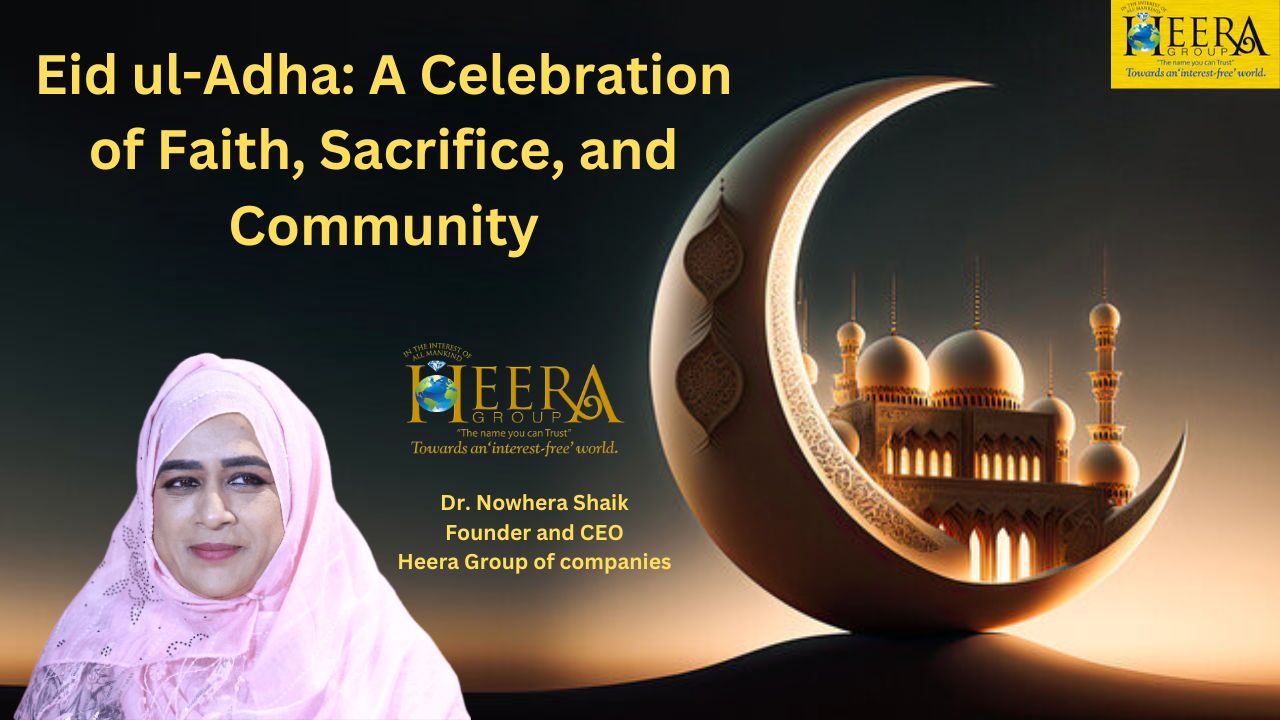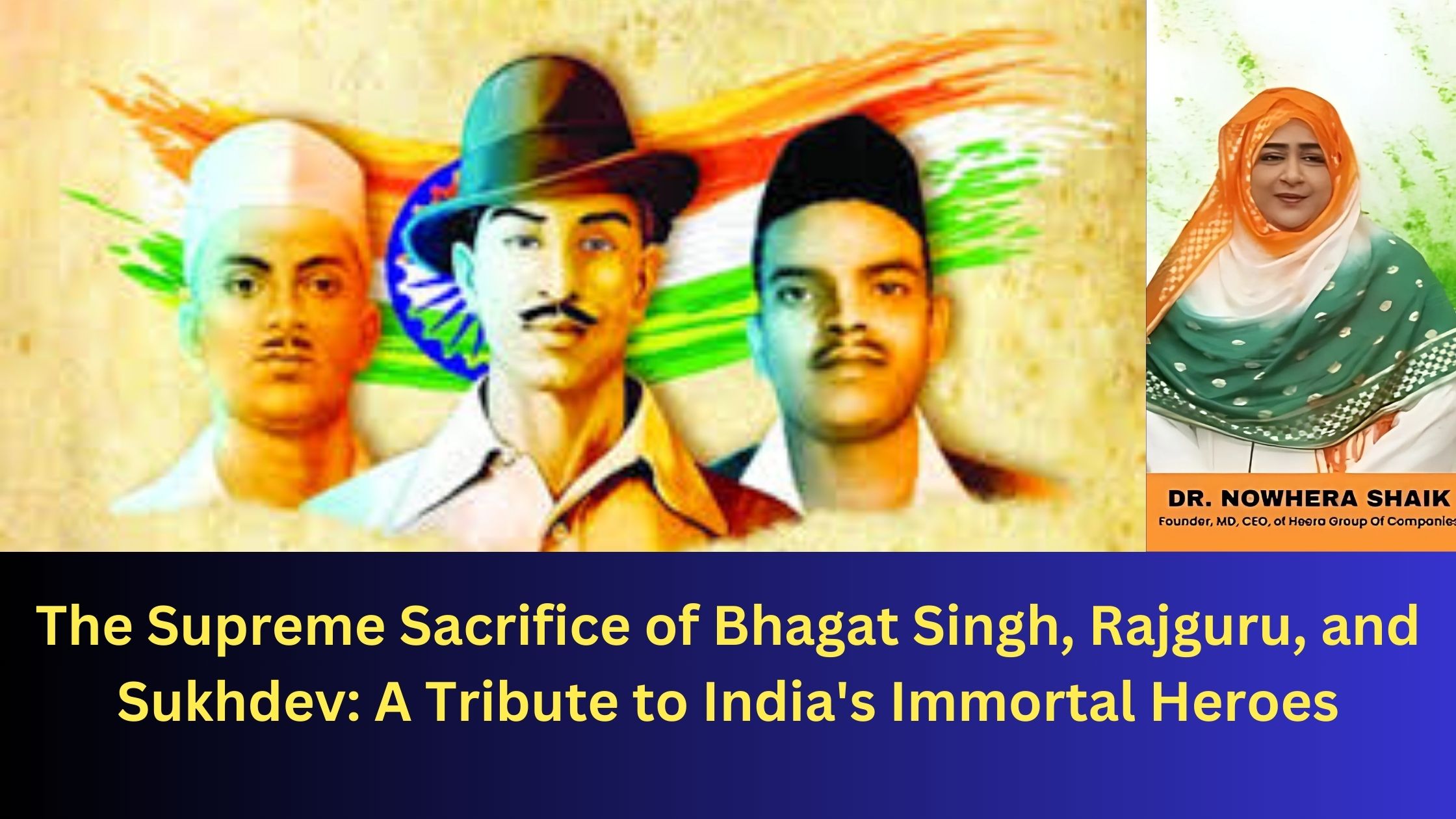- A Message Dr. Nowhera Shaik
- Business
- Congratulatory
- Eid al-Adha
- heeragroup
- india
- Journey
- nowhera shaikh
- Politics
- victory
- womenempowerment
Eid ul-Adha: A Celebration of Faith, Sacrifice, and Community

Introduction
Eid ul-Adha, also known as the of Sacrifice, is a significant Islamic festival celebrated by Muslims worldwide on the 10 day of Dhu al-Hijjah, the final month of Islamic calendar. This festive occasion is not just a time of joy and celebration but also a profound reflection of faith, sacrifice, and community. This article delves into the various facets of Eid ul-Adha, exploring its origins, traditions, and its spiritual and communal significance.
The Historical and Spiritual Significance
The Story of Prophet Ibrahim
At the heart of Eid ul-Adha lies the story of Prophet Ibrahim (Abraham) and his supreme act of obedience to God. The Quran narrates that Ibrahim was commanded by God in a dream to sacrifice his beloved son, Ishmael. Demonstrating unwavering faith, Ibrahim prepared to fulfill this divine command. Just as he was about to carry out the sacrifice, the Angel Gabriel intervened, bringing a ram to be sacrificed instead (Quran 37:102-107).
“It is a tradition that has come down to us from Abraham,” said the Prophet Muhammad, peace be upon him.
Marking the Climax of Hajj
Eid ul-Adha coincides with the culmination of Hajj, the annual Islamic pilgrimage to Mecca and Medina, which is obligatory for all Muslims who are physically and financially able to undertake it. Thus, Eid ul-Adha holds a special place as it marks the completion of this significant pillar of Islam.
Traditional Practices and Celebrations
The Sacrificial Ceremony
A central component of Eid ul-Adha is the ritual of animal sacrifice, known as Qurbani. This practice commemorates Prophet Ibrahim’s willingness to sacrifice his son. Muslims around the world sacrifice animals, typically sheep or goats, and distribute the meat among family, friends, and the less fortunate.
Salat al-Eid
The day begins with a special congregational prayer called Salat al-Eid, held in mosques or open fields. This prayer is an integral part of the celebrations and underscores the communal aspect of the festival as Muslims come together in large numbers to offer their prayers.
Festive Meals and New Attire
Post-prayer, families gather for festive meals, often prepared using portions of the sacrificed animal. Cuisine varies by region but always forms a highlight of the celebration. It’s also traditional to wear new clothes, symbolizing renewal and joy. Children, in particular, look forward to receiving gifts and money, commonly known as Eidi.
Community Spirit and Charitable Acts
Strengthening Bonds
Eid ul-Adha is a time for strengthening family ties and friendships. Families and friends come together, sharing meals and creating lasting memories. It’s a time to reconnect with loved ones and build a sense of togetherness.
Acts of Generosity
Generosity and charity are core aspects of Eid ul-Adha. Muslims are encouraged to help those in need, reflecting the true spirit of sacrifice and sharing. This includes distributing meat from the Qurbani, as well as giving to various charitable causes.
Preparations and Cultural Variations
Days Leading to the Festival
Preparations for Eid ul-Adha often begin days in advance. Markets become bustling hubs of activity with people buying animals for sacrifice, new clothes, and special foods. Homes are thoroughly cleaned and decorated to welcome the festive season.
Cultural Nuances
Eid ul-Adha is celebrated with varying customs across different cultures, yet the core themes of sacrifice, generosity, and community remain constant. In many places, public spaces are adorned with festive decorations, and special events are organized to mark the occasion.
Personal Reflection and Spiritual Growth
Renewing Faith
Eid ul-Adha provides an opportunity for personal reflection and spiritual growth. It’s a time to renew one’s faith and commitment to God, drawing inspiration from Prophet Ibrahim’s exemplary act of devotion.
Gratitude and Introspection
The festival encourages believers to seek forgiveness for past shortcomings and to align their lives with Islamic principles of righteousness. It serves as a reminder to be grateful for one’s blessings and to extend this gratitude through acts of kindness and charity.
Eid ul-Adha serves as a profound spiritual journey, prompting self-examination and a renewed commitment to personal and moral growth in accordance with Allah’s teachings.
Conclusion
Eid ul-Adha is a celebration that transcends mere festivities. It embodies deep spiritual significance, profound acts of faith, and the importance of community and generosity. As Muslims gather to pray, share meals, and give to the needy, they not only honor the legacy of Prophet Ibrahim but also strengthen their bonds with one another and their faith. This festival is a powerful reminder of the importance of sacrifice, devotion, and the spirit of giving, enriching the lives of those who celebrate it.
Eid Mubarak to all who observe this blessed festival!
By Dr. Nowhera Shaik, Entrepreneur and Founding Managing Director of Heera Group of Companies. Email: drnowheraoffice@gmail.com
For more insightful articles and content, stay connected with Dr. Nowhera Shaik, Entrepreneur and Founding Managing Director of Heera Group of Companies. Email: drnowheraoffice@gmail.com.



